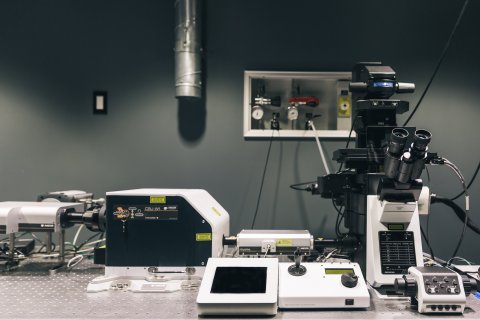You are here
Home ›The Science of Sports Nutrition

Sports nutrition is an art and a science. The art relates to how gracefully and consistently we apply the science. The science is a derivative of scientific investigation. This includes investigation, clinical research and numerous studies performed by researchers and scientists at universities and research centers around the world.
Derived from the Latin scientia, science simply means "knowledge". It's an enterprise that builds and organizes knowledge in the form of testable explanations and predictions about the world. I love the science, because science is an objective search for truth. But don't be misled by Scientology, pseudo-science or science compromised by greed and corporate deceit. Real objective science does not attest to any form of certainty, in fact, science denies it as being possible to be absolutely certain about anything. All scientific theory is empirical, and thus is always open to falsification if new evidence is presented. No theory therefore, is ever considered strictly certain as science accepts the concept of fallibilism.
It's the science that confirms if the supplements on the shelf are safe and effective. For example, does creatine monohydrate improve vertical jump height, sprint speed or kinetic power? Does it possess any life extension value? Can taking it as directed protect mitochondria from damage or sustain my cells with extra energy phosphates?
Like any good scientist I want to know how and why these things work. I want to know why so I can apply them responsibly and teach others with assurance. I won't advocate a lifestyle, training method or nutrition approach that isn't falsifiable, meaning, something that is impossible to prove or disprove. When it comes to food, training and dietary supplements, faith or hearsay alone doesn't cut it.
True science yields an outcome based on the examination of empirical data. It relies on logic and mathematical principles developed over time by observing reality. Objective science has nothing to do with sales and profit. It certainly is used to convince people and sell stuff, but that's not its true function. Nature is a dictatorship. Reality and truth is what it is whether we can see it or not, accept it or not or believe it or not.

So what's going on in the world of sports nutrition science? Plenty.
First, there are several good journals and tons of reference texts and articles available to read and download directly from the internet.
The Journal of the International Society of Sports Nutrition is a peer-reviewed journal that covers various aspects of sports nutrition, supplementation, exercise metabolism, and/or scientific policies related to sports nutrition.
JISSN is the official Journal of the International Society of Sports Nutrition. ISSN posts many great articles on their site and hosts seminars and an annual conference devoted entirely to the scientific investigation of sports nutrition and dietary supplements.
The International Journal of Sport Nutrition and Exercise Metabolism draws from the work of leading researchers. Topics discussed in this journal include aging muscle, muscle wasting, and protein metabolism, among others. It also has information on the molecular, system wide, and whole body effects of physical activity on animals and humans.
Medicine & Science in Sports & Exercise is the official journal of the American College of Sports Medicine. MSSE features original investigations, clinical studies, and comprehensive reviews on current topics in sports medicine and exercise science.
Without science we'd still be living back in the Stone Age. We wouldn't know that vitamins or minerals even exist, let alone be taking them to enhance our health and athletic performance. We wouldn't know that certain diseases and many health problems arise as a consequence of their absence from the human diet.
But there's so much more. What is obvious to those who are seeking more knowledge, is that you can take dietary supplements above and beyond the minimum amounts to improve health, improve performance and minimize risk of disease and premature death.
The qualities that transform human curiosity and the compulsion to know something into good science can be captured in three maxims. A maxim is an expression of a general truth, principle or rule of conduct.
- Good science responds to real phenomena.
- Good science seeks a plausible solution.
- Good science makes a difference.
Science is a human endeavor. A good read on the history of the brave men who helped shape the scientific method is The Grand Design by physicist Stephen Hawking. Hawking details M-Theory and explains how something can come from nothing.
Let's talk about the difference between fact and opinion. Fact in a scientific context is a generally accepted reality. Opinions are neither fact nor theory; they are not officially the domain of science. An opinion is a belief that may or may not be backed up with evidence, but which cannot be proved with that evidence.
Plato said that "Opinion is the medium between knowledge and ignorance." Opinion is normally a subjective statement and may be the result of an emotion or an interpretation of facts. It is therefore possible for people to draw opposing opinions from the same facts.
Scientific opinions are more stable like concrete, but even concrete can crack. They are formed via the scientific method and are therefore subject to constant review, analysis, interrogation and detailed examination. They have a basis in reality and are compatible with reason and rational thought.
So there ya go! In a rational world science comes first, but in an irrational world, science is neither understood, considered or respected. Which world do you live in?
Photo by Shopify Partners from Burst

As always, stay well and live free!
Dr.C
- Log in to post comments